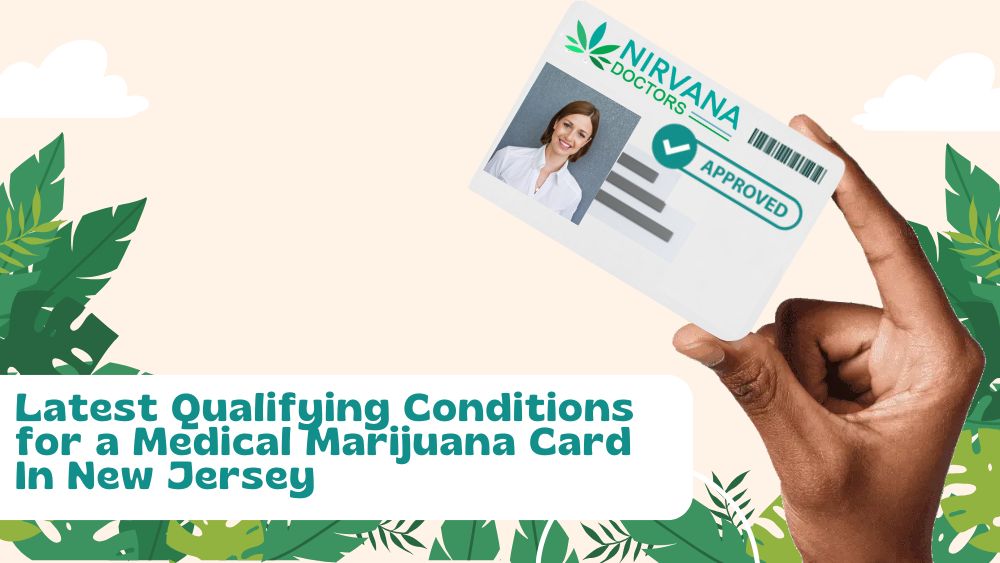 New Jersey has made significant strides in its medical marijuana program, particularly with recent updates to qualifying conditions for obtaining a Medical Marijuana (MMJ) card. This article explores the latest developments, provides a step-by-step guide on how to apply for an MMJ card, and emphasizes the importance of consulting a licensed healthcare provider.
New Jersey has made significant strides in its medical marijuana program, particularly with recent updates to qualifying conditions for obtaining a Medical Marijuana (MMJ) card. This article explores the latest developments, provides a step-by-step guide on how to apply for an MMJ card, and emphasizes the importance of consulting a licensed healthcare provider.
Overview of New Jersey’s Medical Marijuana Program
The New Jersey medical marijuana program was established in 2010, allowing residents with specific medical conditions to access cannabis for therapeutic purposes. Over the years, the program has evolved, expanding the list of qualifying conditions and streamlining the application process. As of 2025, the state has introduced new qualifying conditions, reflecting a growing understanding of the therapeutic benefits of medical marijuana.
Updated List of Qualifying Conditions for 2025
In 2025, New Jersey expanded its list of qualifying conditions for obtaining a medical marijuana card. Here are the updated conditions:
- Anxiety Disorders: Conditions like generalized anxiety disorder (GAD) are now included, recognizing the role of cannabis in alleviating anxiety symptoms.
- Chronic Pain: Persistent pain that lasts longer than six months, not attributed to another underlying condition, qualifies for MMJ.
- Post-Traumatic Stress Disorder (PTSD): Veterans and civilians experiencing PTSD can now use medical marijuana as a part of their treatment plan.
- Multiple Sclerosis (MS): Patients diagnosed with MS can apply for a medical marijuana card to help manage symptoms.
- HIV/AIDS: Individuals diagnosed with HIV or AIDS are eligible for medical marijuana to alleviate symptoms related to their conditions.
- Seizure Disorders: Epileptic patients can now use MMJ to manage seizures, expanding options for treatment.
- Glaucoma: Those suffering from glaucoma can now apply for an MMJ card to help reduce intraocular pressure.
- Other conditions: The state allows for additional conditions to be considered based on a healthcare provider’s discretion, emphasizing the importance of personalized medical advice.
How to Apply for a Medical Marijuana Card in New Jersey: A Step-by-Step Guide
Applying for a medical marijuana card in New Jersey is a straightforward process. Follow these steps to ensure a successful application:
- Consult a Licensed Healthcare Provider: Before applying, it’s essential to speak with a licensed healthcare provider who can evaluate your medical history and determine if you qualify based on the updated conditions for 2025.
- Gather Necessary Documentation: You will need to provide specific documents, including:
- Proof of New Jersey residency (e.g., driver’s license, utility bill)
- Medical records or documentation from your healthcare provider
- A recent passport-sized photograph
- Complete the Application: Access the New Jersey Division of Medicinal Marijuana’s online portal and complete the application form. Ensure all information is accurate and complete.
- Pay the Application Fee: There is a non-refundable application fee that must be paid at the time of submission. Check the latest fee structure on the New Jersey Division of Medicinal Marijuana website.
- Submit Your Application: Once your application is completed and the fee is paid, submit it through the online portal.
- Receive Your Card: After your application is reviewed and approved, you will receive your medical marijuana card via mail. This process typically takes a few weeks.
Legislative Changes in 2025
The legislative updates in 2025 not only expanded qualifying conditions but also aimed to improve patient access to medical marijuana. New Jersey has implemented measures to streamline the application process, ensuring faster processing times and better support for patients navigating the system.
Importance of Consulting a Licensed Healthcare Provider
Consulting a licensed healthcare provider is crucial before applying for a medical marijuana card. They can provide personalized advice, ensure that you meet the qualifying conditions, and help you understand the potential benefits and risks of using medical marijuana.
Frequently Asked Questions (FAQs)
-
What is a medical marijuana card?
A medical marijuana card allows eligible patients to access cannabis for medical purposes legally.
-
Who can apply for an MMJ card in New Jersey?
Patients diagnosed with specific qualifying conditions can apply with a recommendation from a licensed healthcare provider.
-
How much does it cost to apply for an MMJ card?
The application fee varies, so check the New Jersey Division of Medicinal Marijuana website for current fees.
-
How long does it take to receive my MMJ card?
Processing typically takes a few weeks after submission.
-
Can I grow my cannabis with an MMJ card?
New Jersey has regulations regarding home cultivation; consult state guidelines for specifics.
-
Are there restrictions on where I can use my MMJ?
Yes, public use is prohibited, and consumption must occur in private settings.
-
Can minors obtain an MMJ card?
Yes, but they require a caregiver and must meet specific legal requirements.
-
Is medical marijuana covered by insurance?
Generally, insurance does not cover medical marijuana costs.
-
Can I use my MMJ card in other states?
It depends on the state; some states have reciprocity laws while others do not.
-
What if my condition is not listed as qualifying?
You may still consult with a healthcare provider who can advocate for your specific case.